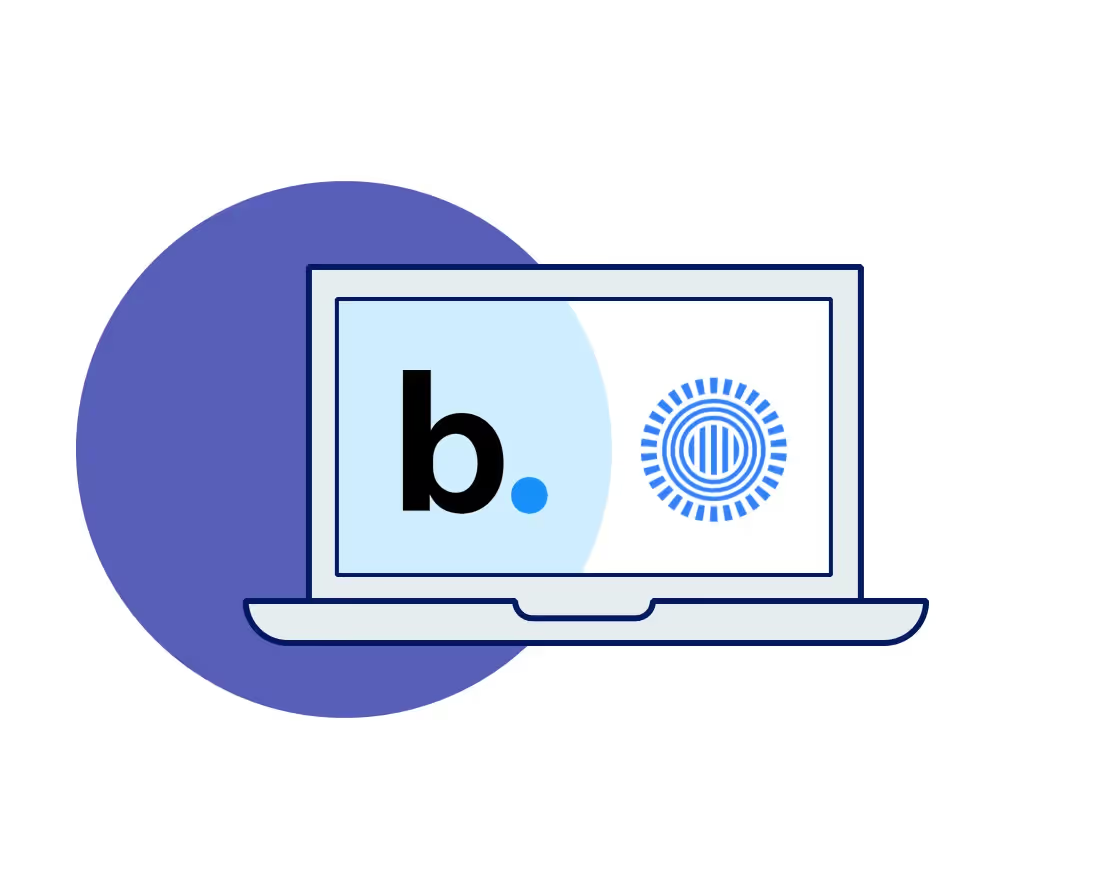
Marketing requires creativity, problem-solving, data-driven insights, strategic thinking, personalization, and timing. No matter the size of your marketing team, the goal is to learn everything about your customer base and craft messages to reach them at the right time with the right context.
Most marketers today (stats incoming!) utilize AI in the workplace. For those who embrace it, the advantages are evident. AI can help your team create more content, learn more through customer data, and simplify approval processes—to name a few quick benefits.
88% of marketers believe that to stay competitive and meet customer expectations, they must implement AI technology. Here are some novel ways marketing teams use AI to increase output and enhance productivity, giving them a strategic edge in the market.
AI in the workplace statistics
- 66% of managers said they are adopting workplace AI tools to enhance worker productivity or improve efficiency. (Beautiful.ai)
- 64% of managers said they are using AI tools to help them manage employees daily or weekly in 2024. (Beautiful.ai)
- 85% of marketers surveyed use AI in the workplace. (Foundation)
- 68% of marketers are currently utilizing AI in their daily tasks and work (MarketingHire)
- 26% of organizations today use AI to assist with their marketing and sales (IBM)
- 76% of marketers worldwide top use for AI is to create essential content or write copy (eMarketer)
- The majority of marketers, 87%, use AI for content creation. The subsequent most popular applications are keyword research (42%), social media (39%), email marketing (39%), and note-taking (36%). (Foundation)
- 88% of marketers believe that to stay competitive and meet their customer’s expectations, they must implement AI technology (MailChimp)
Using AI to improve data analysis
AI can supercharge your team’s ability to analyze and spot patterns in a vast data set, turning those insights into action with unprecedented efficiency.
The ability for teams to quickly and accurately analyze and interpret data is crucial. AI can enhance your team’s data analysis capabilities through features like automated data processing, improved accuracy, and predictive analysis.
- Automated Data Processing: AI algorithms can process large volumes of data at high speeds, far beyond human capabilities. This means faster insights and the ability to make real-time data-driven decisions.
- Enhanced Accuracy: AI reduces the risk of human error in data analysis. AI ensures more accurate and reliable results, leading to better strategic decisions.
- Predictive analytics: AI can identify patterns and trends within data, providing predictive insights. This allows marketers to anticipate market changes, understand customer behavior, and optimize campaigns proactively.
What does AI data analysis look like in practice for your marketing team?
6 practical applications of AI data analysis in marketing
- Customer segmentation
AI algorithms can analyze vast datasets to identify distinct customer segments based on demographics, behavior, purchase history, and preferences. Create highly targeted campaigns, improving engagement and conversion.
- Predictive analytics
AI can analyze historical data to predict future trends and customer behaviors. Marketers can anticipate market shifts, forecast demand, and tailor their strategies to meet future needs, ensuring they stay ahead of the competition.
- Sentiment analysis
Assess customer opinions and emotions from social media and online reviews. This provides marketers (and customer service teams!) valuable insights into customer perceptions and informs strategies to enhance brand reputation.
- Campaign performance analysis
AI can evaluate the effectiveness of marketing campaigns in real-time, providing insights into what’s working and what isn’t yet.
- Churn prediction
Your data likely contains patterns that indicate customer churn, and AI can piece them together so you can address issues and implement retention strategies. By predicting which customers are at risk of leaving, marketing teams can take targeted actions to improve customer loyalty.
- A/B testing optimization
AI can streamline A/B testing by analyzing results more efficiently and accurately. It can identify the best-performing variant and suggest improvements.
Marketing data analysis tools that implement AI:
HubSpot
HubSpot helps companies streamline marketing automation through AI capabilities that allow marketers to automate repetitive tasks. For instance, its smart content features enable the creation of personalized email campaigns and landing pages that adapt to individual user behavior.
Additionally, HubSpot's robust analytics tools offer deep insights into campaign performance, helping teams make data-driven decisions. With seamless integrations across CRM, sales, and customer service tools, HubSpot ensures that all your marketing efforts are aligned and efficient.
Google Analytics
Google Analytics offers AI-driven features such as predictive metrics and automated insights, which help highlight key trends and anomalies in the data. These insights enable marketing teams to make informed decisions, optimize strategies, and improve ROI.
AI-driven content creation
Content will always be king, and higher efficiency means more time to strategize how to reach your customers in a meaningful way.
AI content creation is probably the most common and well-known use of the technology. AI accelerates content creation and can ensure consistency and coherence across marketing materials. Marketers can use AI to create dynamic content or to help generate ideas and outlines to simplify the content creation process.
AI content creation tools for marketers:
ChatGPT
ChatGPT, developed by OpenAI, is likely the most well-known AI for content creation. By understanding and generating human-like text, ChatGPT helps marketers produce content quickly and efficiently – kind of the entire game of marketing AI. ChatGPT can be used for any copy-based use case, from website copy to blogs to video scripts.
Blaze AI
Whether you need to write copy, generate outlines, personalize messages, or create brand-consistent assets, Blaze AI streamlines the entire process. Its advanced algorithms and user-friendly, customizable features produce high-quality, brand-relevant content.
Jasper
Jasper uses advanced AI algorithms to generate high-quality, engaging content for various marketing needs, including blog posts, social media updates, and ad copy. Jasper's AI is trained in diverse writing styles and can adapt to your brand's unique voice, ensuring consistency and relevance in your messaging. Jasper also offers features like content suggestions and tone adjustments, which help fine-tune the copy to resonate with the target audience.
Beautiful.ai
With Beautiful.ai, you can create stunning presentations that convey your message and story. Our AI-driven platform ensures that your presentations are not only visually appealing but also automatically formatted to your brand theme and voice. Smart Slides intuitively adjust to new design elements and ensure uniformity. Our AI assistant offers design and copy suggestions based on content and context, improving the quality of your writing and generating ideas that will resonate with your audience.
The power of personalization
Delivering personalized content enhances customer engagement and drives conversions. AI stands out as a tool for personalization because of its advanced data capabilities alongside content creation and predictive analysis.
AI-powered personalization can be scaled across large audiences, delivering individual experiences to thousands or even millions of customers without compromising quality or efficiency.
For example, AI can optimize ad placements by analyzing user behavior and targeting the most relevant audiences, increasing the ad's effectiveness and improving ROI.
AI can also segment customers into particular groups based on detailed criteria, allowing for more precise targeting and personalized messaging.
Or product recommendations: AI-driven recommendations can suggest products and services tailored to individual customer preferences, increasing the likelihood of purchase.
AI tools to build upon your current personalization efforts:
Persado
Persado excels in crafting personalized marketing messages. By analyzing vast amounts of language data, Persado's AI algorithms generate tailored content that resonates with specific audience segments. This tool helps marketers optimize email subject lines, social media posts, and ad copy, ensuring that each message is compelling and effective. Persado uses machine learning to predict which words, phrases, and emotions will drive the highest engagement, allowing marketers to fine-tune their communication strategies.
Dynamic Yield
Dynamic Yield excels in tailoring customer experiences through personalization by analyzing real-time data and user behavior. Dynamic Yield creates customized content, product recommendations, and user journeys that resonate with individual consumers. AI algorithms continually learn and adapt, optimizing personalization efforts to meet evolving customer preferences.
Marketo
Marketo is a leading AI-powered platform that excels in automating personalized marketing campaigns. By leveraging customer data and behavioral insights, Marketo enables marketers to create highly targeted campaigns that resonate with individual audience segments. Marketo's AI capabilities help identify the most effective content and timing for each customer interaction, optimizing engagement and conversion rates.
Salesforce Einstein
Salesforce Einstein is an AI tool that brings predictive personalization to the forefront of marketing efforts. Through machine learning and predictive analytics, Salesforce Einstein helps marketers deliver highly personalized experiences at scale. The platform analyzes customer data to predict future behavior, enabling marketers to anticipate needs and tailor content accordingly. Features such as predictive scoring, automated recommendations, and audience segmentation allow for more precise targeting and engagement.
AI empowers marketing teams to extract meaningful insights, optimize strategies, and drive better results, faster. With these tools in their back pocket, marketers can make more informed decisions, deliver personalized experiences, and stay competitive in a rapidly evolving market.








